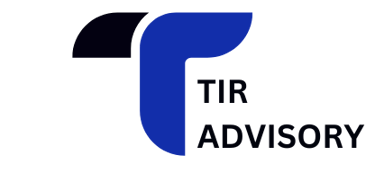
PDPA Compliance Program
IT COMPLIANCE
Importance
What is the PDPA?
PDPA is Thailand’s first consolidated data protection law. It applies to all organizations that handle THAI personal data — including customer, employee, and vendor information — regardless of size or industry.
The PDPA came into full enforcement on 1 June 2022 and is overseen by the PDPC
Why It Matters
to Your Business
Legal Requirement — Non-compliance may result in penalties, including fines (up to THB 5 million), civil liability, and criminal charges.
Client & Partner Expectations — Large customers, banks, and vendors increasingly expect SMEs to show PDPA compliance before doing business.
Operational Clarity — Clear policies and data handling processes reduce errors, protect your team, and improve daily operations.
Reputation & Trust — Customers are more aware of their privacy rights. Businesses that respect and protect personal data earn long-term trust.
Scope of Applicability
What is the PDPA?
All organizations established in Thailand — whether large corporations, SMEs, or startups
Organizations outside Thailand that collect, use, or transfer personal data of individuals in Thailand
This includes businesses that handle data from customers, employees, vendors, or third-party platforms — in any format, online or offline.
Who will have to comply?
Why It Matters
to Your Business
To comply with the PDPA, organizations should be able to demonstrate the following:
Maintain a personal data inventory that shows what data you collect, how it’s used, stored, and shared.
Collect personal data only when necessary, with a clear legal basis (e.g. consent, contract, legal obligation).
Consent (if required) must be freely given, specific, informed, and unambiguous — and can be withdrawn at any time.
Provide a clear notice at the time of data collection, explaining the purpose, use, and disclosure of personal data.
Enable individuals to access, correct, delete, or object to the use of their personal data in line with PDPA Data Subject Rights.
Implement reasonable and appropriate Security Measures to protect personal data from loss, unauthorized access, or misuse.
Ensure that vendors, processors, and international data transfers meet PDPA requirements.
In case of a data breach, notify the regulator within 72 hours and the data subject if the risk is high.
PDPA Key Compliance Areas
Deliverables
What are the deliverables?
Gap Analysis & Roadmap : Risk assessment, Data flow mapping, Action plan
Documentation Kit: Privacy notices, Consent forms, Breach notification templates, Data inventory template, DPA agreement template, Policy localization
Awareness Training: Training slides, Staff handbook, Case-based Q&A
DPO Advisory (optional): Role setup, Compliance checklist, Reporting templates, Regulatory updates
Contact US
Leave your email for business contact, we will reach out to you asap!
info@tir-advisory.com
+66 95 582 9976
© 2025 by TIR Advisory Co. Ltd. All rights reserved.


